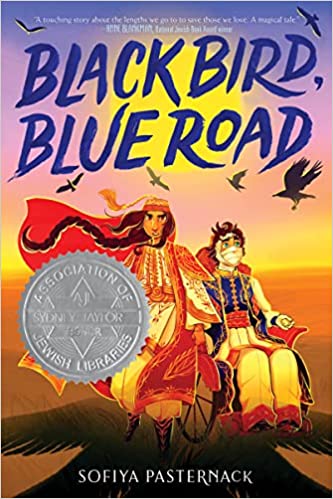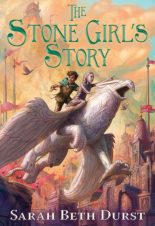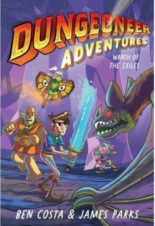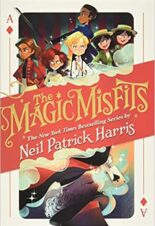
Buy This Book
“The kindest and most noble people still pass into my darkness, not because of any crime or sin, but because they must,” Azriel–Black Bird, Blue Road
Black Bird, Blue Road
by Sofiya Pasternack
AR Test
8+
Score
4.5
320
Twelve-year-old Ziva has two goals in life: to become a judge like her father and to save her twin brother, Pesah, from leprosy. Because of his health, Pesah lives in his quarters alone. Against her parent’s wishes, Ziva visits him every day. Pesah is dying and he doesn’t have long to live. When Pesah has a dream that he will die on Rosh Hashanah, Ziva refuses to accept this fate and decides to take Pesah’s health into her own hands. When Pesah tells Ziva about a town, Byzantium, that is full of doctors, medicine, and hopefully a cure, the twins steal their family’s wagon and start their journey to Byzantium.
Their journey is interrupted by a boy, Almas, who freezes Ziva and shackles her to a wagon. The boy says he will help her and her brother if she helps him in return. Desperate, Ziva agrees. He instructs her to find a specific bowl in the wagon and break it. After breaking it, the boy changes into something completely different—a half-demon boy. Almas says he is bonded with them until he fulfills his promise to help. Ziva is hesitant to trust Almas, but Pesah reassures her that Almas can be trusted. Almas tells them they do not need to go to Byzantium but, instead, to go to Luz. A place where the Angel of Death is not allowed, and the people live forever.
The three of them journey to Luz with some pit stops along the way. Ziva hopes Luz will be the answer to her prayers and she will find a way to heal Pesah. Black Bird, Blue Road introduces readers to the Jewish religion and culture, including the angels they trust and the demons they fear. Although death is talked about throughout the entire story, Ziva, as well as the reader, is taught that death is not a punishment but a gift.
Black Bird, Blue Road is best suited for strong readers or for those who are already familiar with Judaism. The book contains a glossary to help readers understand the Jewish language and culture. However, since the Hebrew and Jewish cultures are intertwined in the story, passages can be confusing and hard to read. It is up to the reader to go to the glossary in the back to fully understand some of the text.
The story is told from the first-person limited point of view of Ziva. Ziva is admirable as she is loyal to her brother. Her bravery comes from her dedication to her brother as she takes on trials to save his life. Pesah is logical and keeps her grounded. His kindness compliments her stubborn nature. Lastly, we have Almas. He is judged for his parents’ title as “Sheyds” but fights for a different reputation. He relates to Ziva and Pesah because he understands the pain of death, just as they do.
Although Black Bird, Blue Road takes on the devastating topic of death, the author allows Ziva, Pesah, and the reader to laugh, smile, and become at peace. Readers with an interest in religion and ethical thinking will love this book. The author does a great job connecting with the audience using emotion and creating a relationship with the characters. The theme allows the reader to reflect on personal experiences around death. While the conclusion can be considered unhappy, the reader feels satisfied because Ziva grows to eventually accept Pesah’s fate.
Sexual Content
- Almas and Ziva walk together in the dark, leading the horses through the path. They share a touch that sparked something in Ziva. Almas’ “hand touched hers. His fingers closed tightly around hers, hand warm and steady, and Ziva felt a flush heat her face and neck. He pulled her closer.” After this interaction, Ziva blushes as Almas hands her the horse’s reins and they continue to walk down the path.
Violence
- Ziva needs to cut off her brother’s finger so his disease does not spread. “Ziva held his infected finger out straight, away from his other fingers, and slipped the shears’ blades a tiny way down from where the blackness ended . . . She needed to pull the handles of the shears together swiftly, smoothly. The infected finger dropped into the bucket and was lost in the gauze there.” Ziva wraps Pesah’s amputated finger in linen to stop the bleeding.
- Ziva sticks up for her brother by punching a bully, Reuven, in the face. “Ziva’s fist connected with Reuven’s nose before she even realized she was swinging. He yelped, staggered back, and tripped over the edge of the reflecting pool.”
- When the brother and sister duo run away, they are stopped by local thieves. Ziva tries to fight one of the boys, Almas. Ziva lunged “for the boy. She was about to give him another scar to complement the one he had. He barely dodged her swiping hand in time. . . Almas caught her wrist as she tried to smack him again, ‘stop!’” Almas holds her arms to stop her from hitting him. Ziva eventually calms down.
- One of the thieves slaps Ziva for snarling at him. He then says, “There’s more where that came from. Maybe I’ll break your nose next time . . . ”
- After breaking a bowl, Almas is released to his natural form as a half-demon. Enraged at being enslaved by the two thieves he was with, Almas kills them. “Avag was pulled away from [Ziva]. And flung out the back of the wagon. He skidded across the rocky ground and came to a stop near a horrified Petros.” Almas then, “seized Avag by the throat. Petros turned and ran.” Ziva and Pesah run away, and the remainder of the fight between the two thieves and Almas is not described. Pesah sees the Angel of Death, Malach ha-mavet, arrive and then hears screams.
Drugs and Alcohol
- Ziva tries to give her brother a medicine to cure his leprosy. She found this remedy in “a medical pamphlet from Byzantium.” The recipe calls for: speak-leak, crop-leak, wine, and bull’s gall. It needed to be put in a brass bowl for nine days. However, Pesah never ingests this mixture.
Language
- Ziva calls one of the men that tried to rob her and her brother a “stupid thief.”
- One of the thieves calls Ziva a “stupid girl.”
- Ziva gets called a “brat” for sticking up for a local fruit vendor.
Supernatural
- Almas uses one of his powers as a sheyd, a demon, to freeze Ziva.
- Almas can hear the future, but he never uses this power in the book. It is only mentioned.
Spiritual Content
- Pesah has a vision of the Angel of Death, who said he will die on Rosh Hashanah.
- Several demons are mentioned. Mazzikims are invisible demons. Shabriri are water demons that appear when humans come close to water at night. These demons are talked about and briefly explained.
- The Angel of Death is mentioned multiple times in both English and Hebrew – Malach ha-mavet. This Angel is described by Ziva as having six wings and many eyes. The Angel of Death can also disguise itself as a little boy.
- To break Almas’ curse, Ziva breaks a bowl that is carved with demonic figures that have birds’ feet and fangs.
- The Milcham bird is the leader at Luz. The kids talk about how one of the Milcham’s feathers could cure any illness.
- While at the river, Ziva is stopped by a demon called Shabriri. The demon tries to take her to be punished for coming to the river at night, but Pesah banishes the demon with a saying he learned at the Synagogue. Pesah says, “Briri.” He then repeats, “Ri!”
- Ziva talks about Elul and its practices. Elul is a Jewish holiday celebrated on the twelfth month on the Hebrew calendar. It is a time to reflect on wrong-doings and strive to be better for Rosh Hashanah.
- Ziva and Pesah pray nightly. She offers to pray with Almas but is hesitant because of Almas’s half-demon nature. He accepts their offer to pray.
- When they see wolves leading their wagon, Ziva talks about “Celestial Khazars” who are shapeshifters. These wolves lead the group to the Asena camp. There is no description of these animals’ shapeshifting.
- Before arriving at Luz, the group stops at a camp. A shaman, Chichäk, greets them and says the twins brought the Angel of Death to their camp. Ziva begs Chichäk to help her brother. The shaman takes Pesah to perform rituals telling Ziva she will ask the spirits to help. The ritual performed is not described. It does not heal Pesah, but it gives him three more days to live.
- At the camp, Ziva is greeted by a boy. They talk about the different religions, Gods, and beliefs. One part of this conversation is narrated as, “The boy pointed upward into the darkness. ‘Tengri is the god of the sky.’ Ziva smiled at him, trying to keep it from looking as patronizing as it felt. ‘In the city, we believe in Hashem.’” The boy then asks Ziva if she believes these Gods are different. She answers yes. The boy responds to this by saying, “There are many paths to the heavens. Because one path would not be enough.”
“The kindest and most noble people still pass into my darkness, not because of any crime or sin, but because they must,” Azriel–Black Bird, Blue Road
Latest Reviews

Driven

Goodbye Days

Blood of Troy

Will’s Race for Home

Animal Superstars: And More True Stories of Animal Talents

Temple of Secrets

Lifeboat 5

Rock ’n’ Goal

Dogku






